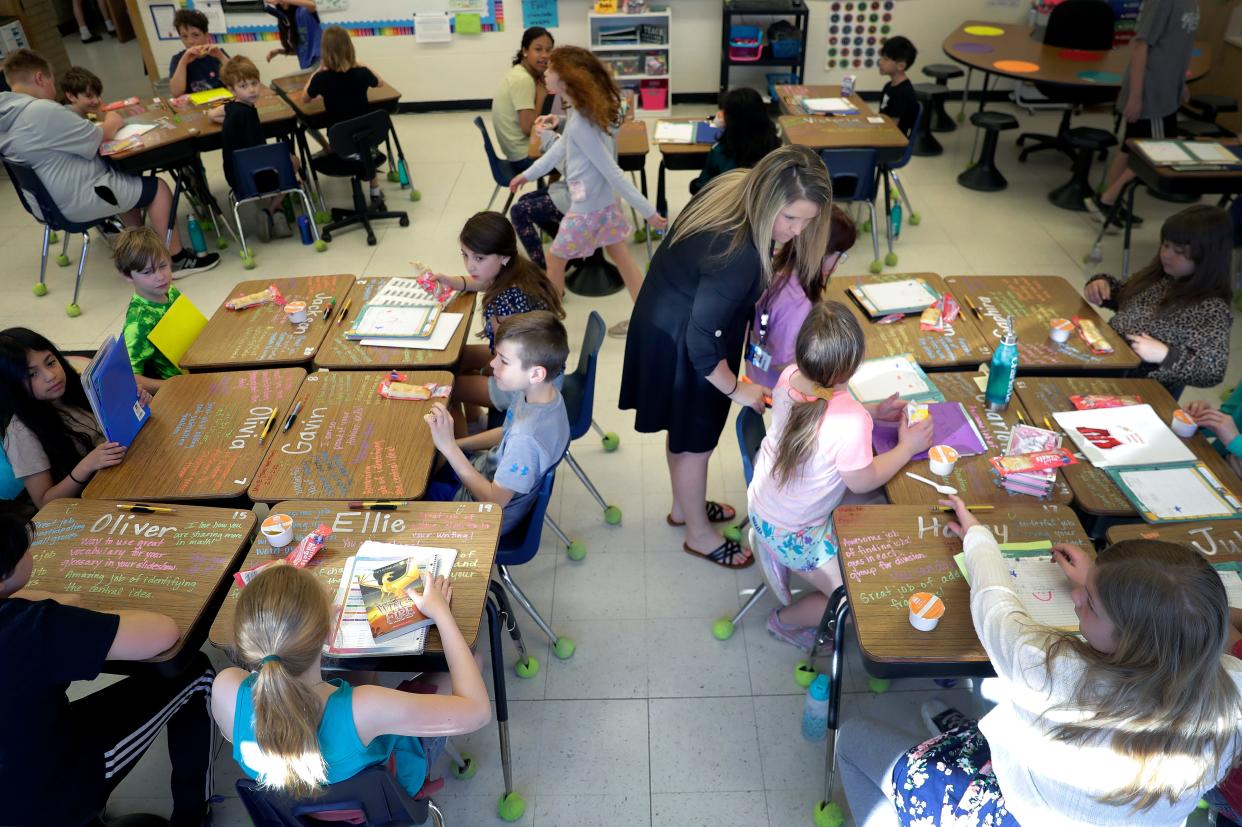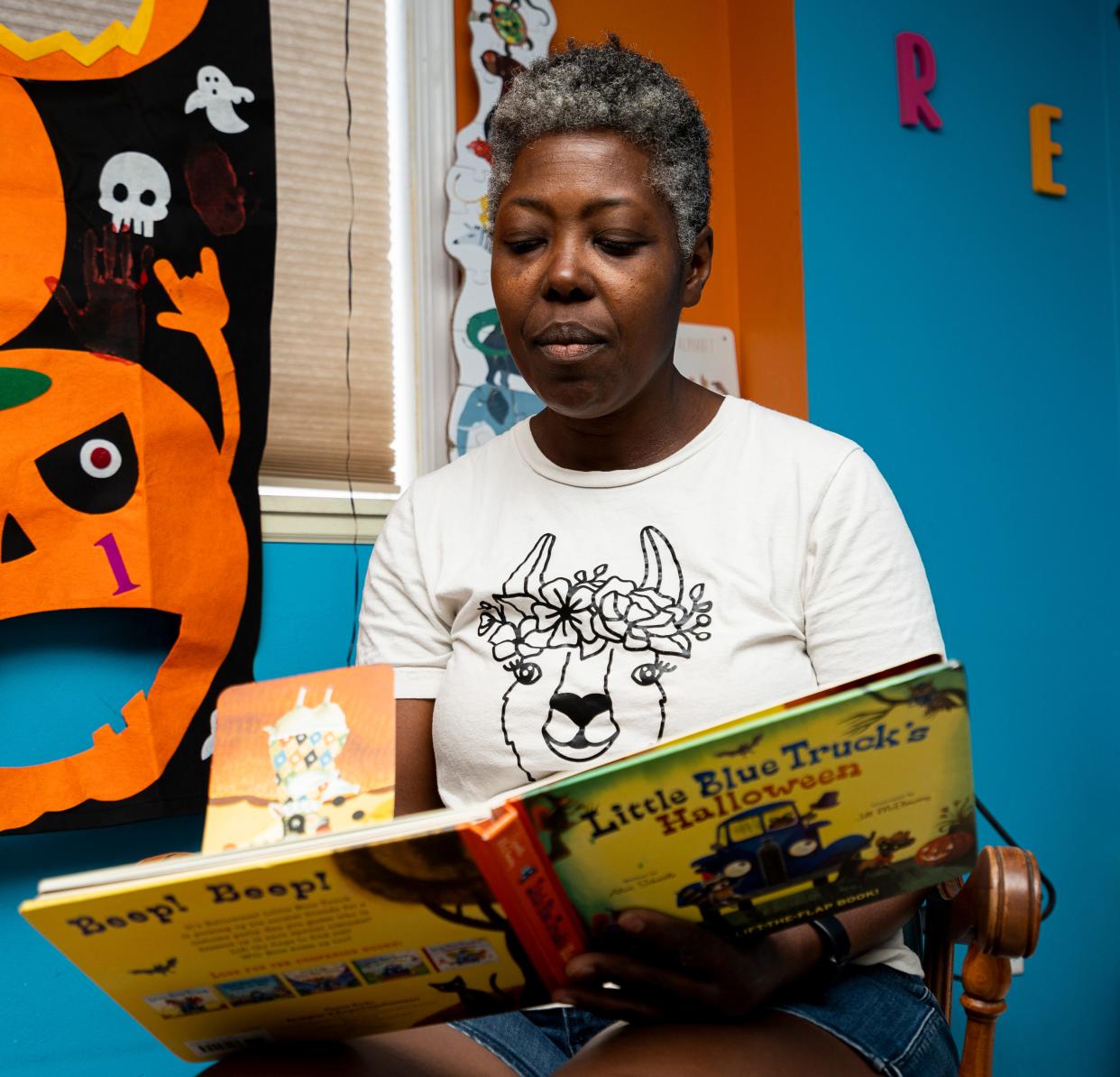Wisconsin Department of Public Instruction asks lawmakers to change deadline for implementing part of Wisconsin's new literacy law
MADISON — The Wisconsin Department of Public Instruction is asking Republican lawmakers to change the deadline for implementing part of the state's recently passed literacy law, Act 20.
State Superintendent Jill Underly sent a letter to lawmakers Feb. 1 saying that while DPI is on track to meet its statutory deadlines, both public and private schools "continue to convey genuine fear."
"Without additional flexibility concerning timelines, the initial rollout of this important work may be disrupted or worse yet, fail to take hold," Underly wrote in her letter.
More: Wisconsin passed a landmark literacy law 3 months ago. So what happens next?
Tight deadlines for schools under Wisconsin's literacy law
Act 20, which overhauled Wisconsin's reading instruction, was signed into law last summer. The law creates a wave of new requirements for school districts to abandon some instructional practices as early as next school year and provide their teachers with time-intensive training by 2025.
Underly's letter was addressed to Rep. Joel Kitchens, R-Sturgeon Bay, who is the chair of the Assembly Committee on Education and was one of Act 20's authors, and Sen. John Jagler, R-Watertown, the chair of the Senate Committee on Education, among other Republican lawmakers.
The DPI's request came after the department received a Jan. 26 letter from a coalition of educational organizations asking for an extension on when schools need to start administering a universal reading screening test to 4-year-old kindergartners through third-graders. The screening is required by Act 20 to measure student understanding of key reading skills like oral vocabulary and alphabet recognition.
The goal of the screening test is to identify students who may be falling behind in reading by testing 4K students twice a year and kindergarten through third-grade students three times. Students who score below the 25th percentile on the screening are considered "at-risk," according to Act 20, and will get additional diagnostic testing and instructional interventions, such as a personal reading plan.

The DPI is required to select the universal screening test by July, but that leaves districts with little time to train staff on the screening and begin administering it to students starting next school year.
"Given contract timing, training on the reading screener would not be able to occur until August," DPI's written testimony to the Senate Committee on Education said. "Schools will also be working to implement science-based early literacy instruction and new reading intervention systems and structures at the same time."
Laura Adams, DPI's policy initiatives adviser, asked lawmakers Tuesday to remove the first deadline for the universal screening to give schools more time, reducing the number of screening tests for the 2024-25 school year from three to two. Under Act 20, schools are required to give the first screening test before the 45th day of school and the second sometime in the middle of the school year, as determined by the school board.
Adams asked lawmakers to add an amendment to SB990 to remove the first deadline. That bill is also related to Act 20 and would expand who can offer professional development required by the literacy law. It's still in committee and would need to pass both chambers before heading to Gov. Tony Evers' desk.
The DPI has had ongoing conversations with lawmakers and remains optimistic that the deadline extension can get done, according to DPI spokesperson Chris Bucher.
Kitchens told the USA TODAY NETWORK-Wisconsin that he's willing to consider moving the deadline for the first screening, but he doesn't want to delay any further.
Coalition of education organizations worry about other Act 20 deadlines
The coalition of educational organizations that wrote to Underly about timeline concerns included the Wisconsin Association of School Boards, Southeastern Wisconsin Schools Alliance, School Administrators Alliance and the Wisconsin Rural Schools Alliance.
Their letter didn't just voice worry over the universal screening deadline but for other components of the reading law as well. The coalition asked to delay the implementation of all of Act 20 to September 2025.
"School districts across the state will be scrambling to comply with the unrealistic timelines currently outlined, which will result in surface-level implementation, wasting precious resources of time, talent, and budget money, and limit the opportunities for critically important training and professional learning around evidence-based literacy instruction," the letter said.

Kitchens said there's no way the requirements will get pushed back a year.
"It's not fair to the kids. We need to start teaching them reading properly," he said.
Act 20 bars schools from teaching a reading technique called "three-cueing" in kindergarten through third grade starting in the 2024-25 school year. Many of Wisconsin's school districts, including some of its largest, use curriculums that incorporate this method.
Three-cueing is also known as MSV ("meaning, sentence structure and visual cues"). The technique is considered controversial because it places an emphasis on students using the meaning of the sentence or context, sentence structure and visual cues (the letters themselves) to decipher meaning from text instead of sounding out a word.
Research shows that this technique is used by poor readers, and that strong readers opt for sounding out words first.
The literacy law's provisions have left districts that use the three-cueing method with less than a year to adopt new practices, train their staff and have it ready for next school year.
Starting last month, if a school district wants funding to adopt a new reading curriculum, it must be one approved by the DPI. As required by the literacy law, the department created an Early Literacy Curriculum Council that's tasked with developing a list of approved, science-backed curriculums.
However, the council is behind on releasing that list. It was supposed to come out with one in January, but it has yet to do so.
"The delay of recommended curricula provides school districts with very little time to vet and pilot curriculum resources off of the recommended list for potential adoption for the 2024-25 school year," the letter said.
Danielle DuClos is a Report for America corps member who covers K-12 education for the Green Bay Press-Gazette. Contact her at dduclos@gannett.com. Follow on Twitter @danielle_duclos. You can directly support her work with a tax-deductible donation at GreenBayPressGazette.com/RFA or by check made out to The GroundTruth Project with subject line Report for America Green Bay Press Gazette Campaign. Address: The GroundTruth Project, Lockbox Services, 9450 SW Gemini Drive, PMB 46837, Beaverton, Oregon 97008-7105.
This article originally appeared on Green Bay Press-Gazette: DPI asks lawmakers to change literacy law deadline for reading test
